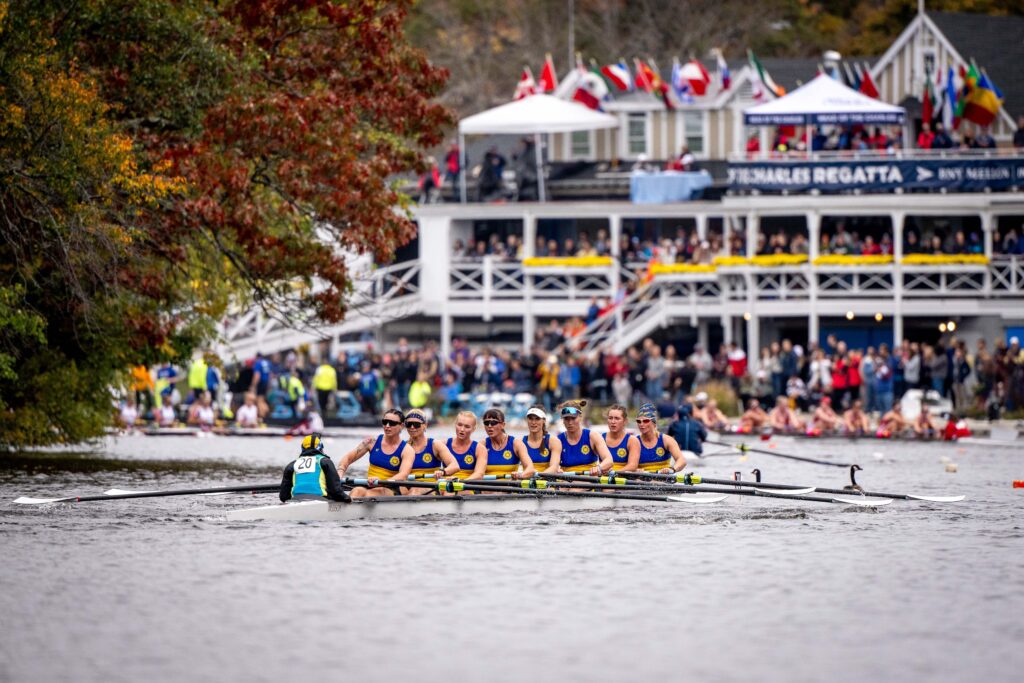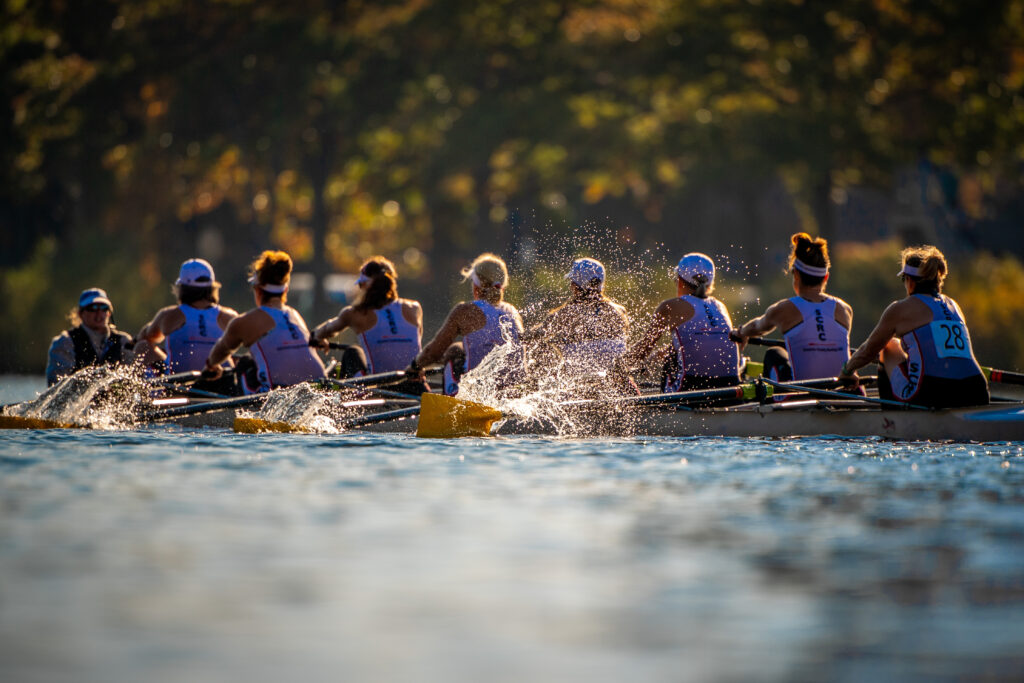
24 Oct 2022
Records fall in celebration of rowing at the Head of the Charles
The banks of the Charles River in Boston, Massachusetts, were lined once again with thousands of spectators over the weekend as the Head of the Charles Regatta returned to its full pre-pandemic glory.
The regatta attracted a record entry from 2 488 crews from 792 clubs around the world – and with balmy, favourable conditions, particularly on Saturday. A total of 23 course records fell across the three days of racing.
USA crews took most of the championship titles, but the women’s championship eights went to Leander Club of the UK. Leander’s crew were second behind Penn University to all but the final timing marker, taking the first win for a British crew in this event.
“The women in the boat were amazing today, very much focus on, blinkers all the way, it was just our race,” said coxswain Morgan Baynham-Williams, stepping into the seat after coxing Great Britain’s PR3 mixed coxed four to world championship gold only a month ago.
Reigning Olympic single sculls champion Emma Twigg of New Zealand was second in women’s championship single sculls to Cambridge Rowing Club’s Emily Kallfelz, who started with bow number 20 to work her way up through the field.
Ezra Carlson of the Green Racing Project, who was a spare for the USA team at the 2022 World Rowing Championships, won the men’s championship single sculls. He was also in the US Rowing men’s eight which won championship eights on Sunday in a new course record of 13 minutes 23.638 seconds.
“Looking back it was pretty unbelievable. In the moments I was just focusing on the racing, focusing on one at a time and doing what I could,” said Carlson after the eight.
He added that the eight was broadly the same crew which had won the SH Netz Cup at the start of October.
“We’ve all rowed together, we all know each other, we spent all summer together so it’s pretty easy to hop in the boat and find a good rhythm,” Carlson said.

While there was loud support for many crews on the bank throughout the weekend, arguably the boats receiving the most applause were the Ukrainian entries – a men’s youth four, and men’s and women’s championship eights. The crews were supported by the regatta to come and race and were coxed by experienced US coxswains.
“It was a very nice experience, and absolutely new for us, a snake course and a very long race like an anaconda,” said Olena Buryak. “I am absolutely happy because we finished this race and still with the cox inside the boat, we still can move and laugh and to show people that we are smiling.”
Dmytro Hula from the men’s eight said the welcome had been incredible.
“It’s even hard to warm up, because all the time you get support. People are shouting ‘go Ukraine’, and everything like that, then you cross the start line and at the start line from the speakers they say ‘Ukraine you are welcome’, and ‘go Ukraine’, and you are already racing. It’s awesome,” he said.
Hula said his coach and friends from his home, the occupied city of Kherson, had been hoping to watch the livestream of the race – if they had an internet connection.
“We are constantly on the phone and they were cheering us up and showing their support. They are together with us,” he added.
“For us it’s very important to be here and at least to say thank you to everybody, to hug everybody who wants to, and to talk about Ukrainian problems,” said Buryak.
Both said there had been no language issues with their coxswains, Ryan Williams and Emelie Eldracher.
“He could have even been silent for the whole race, but he steered the boat in the most brilliant way,” said Hula of Williams.
“We learned some of the main words and everyone did well. It’s not too hard, it’s not like writing a poem, it’s much easier.”

The combination of perfect fall weather drew in the crowds, and USA Olympian Gevvie Stone – who retained her women’s masters single sculls title – said the weekend encapsulated what made the regatta special.
“I love what head races are, because you’re rowing against the clock. You’re really pushing yourself and seeing how fast you can go, and that’s why we row, to push ourselves. Then to do it in a city that loves rowing at a time of year this beautiful, with all these people from all around the world, it’s really a true celebration of rowing,” Stone said.

